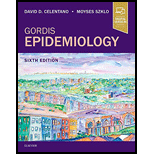
Concept explainers
Introduction: Attributable risk is defined as the quantity in terms of amount or proportion that can be attributed to a specific exposure of a disease incidence. Attributable risks are a concept used in areas such as public health and clinical practice where there are questions related to potential for preventive measures of a disease.
Answer to Problem 1RQ
Correct answer: The given case study is an example of an attributable risk. Therefore, option b. is correct.
Explanation of Solution
Reason for the correct answer:
Option b. is given as “an attributable risk”
Attributable risk gives quantity of a certain disease for a specific exposure in order to identify any scope of prevention. In the given case study, 85% is a quantifiable measure. The disease is lung cancer and the specific case of exposure is cigarette smoking. The preventive measure here is cigarette smoking. Hence, option b. is correct.
Reasons for incorrect answers:
Option a. is given as “An incidence rate”.
Incidence rate is about number of diseases within a specific period of time. The given case study does not talk about any new disease. So, option a. in incorrect.
Option c. is given as “A relative risk”.
Relative risk is for probability of disease occurring in exposed and unexposed group. In the given case study, only exposed group is mentioned. So, option c. is incorrect.
Option d. is given as “A prevalence risk”.
Prevalence risk gives proportion of a specific group of population affected by a disease. The given case study is about the entire population. So, option d. is incorrect.
Option e. is given as “A proportionate mortality ratio”.
The given case study gives information about exposure and affected and not about mortality. So, option e. is incorrect.
Hence, options a., c., d., and e. are incorrect.
The given case study is an example of an attributable risk.
Want to see more full solutions like this?
Chapter 13 Solutions
Gordis Epidemiology
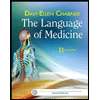 The Language of Medicine, 11eHealth & NutritionISBN:9780323370813Author:Davi-Ellen Chabner BA MATPublisher:Saunders
The Language of Medicine, 11eHealth & NutritionISBN:9780323370813Author:Davi-Ellen Chabner BA MATPublisher:Saunders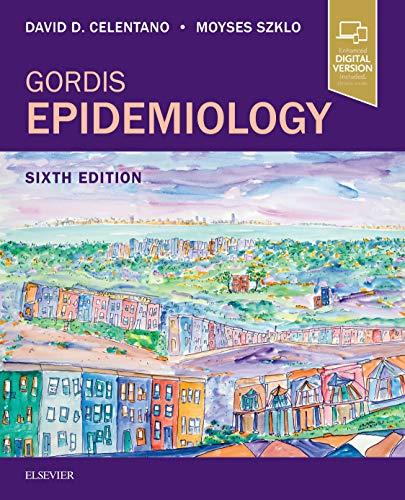 Gordis EpidemiologyHealth & NutritionISBN:9780323552295Author:David D. Celentano, Moyses SzkloPublisher:ELSEVIER
Gordis EpidemiologyHealth & NutritionISBN:9780323552295Author:David D. Celentano, Moyses SzkloPublisher:ELSEVIER Nutrition Through The Life CycleHealth & NutritionISBN:9781337919333Author:Brown, Judith E.Publisher:Cengage Learning,
Nutrition Through The Life CycleHealth & NutritionISBN:9781337919333Author:Brown, Judith E.Publisher:Cengage Learning,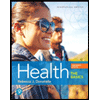 Health: The Basics (13th Edition)Health & NutritionISBN:9780134709680Author:Rebecca J. DonatellePublisher:PEARSON
Health: The Basics (13th Edition)Health & NutritionISBN:9780134709680Author:Rebecca J. DonatellePublisher:PEARSON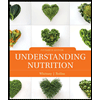 Understanding Nutrition (MindTap Course List)Health & NutritionISBN:9781337392693Author:Eleanor Noss Whitney, Sharon Rady RolfesPublisher:Cengage Learning
Understanding Nutrition (MindTap Course List)Health & NutritionISBN:9781337392693Author:Eleanor Noss Whitney, Sharon Rady RolfesPublisher:Cengage Learning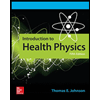 Introduction To Health PhysicsHealth & NutritionISBN:9780071835275Author:Johnson, Thomas E. (thomas Edward), Cember, Herman.Publisher:Mcgraw-hill Education,
Introduction To Health PhysicsHealth & NutritionISBN:9780071835275Author:Johnson, Thomas E. (thomas Edward), Cember, Herman.Publisher:Mcgraw-hill Education,





